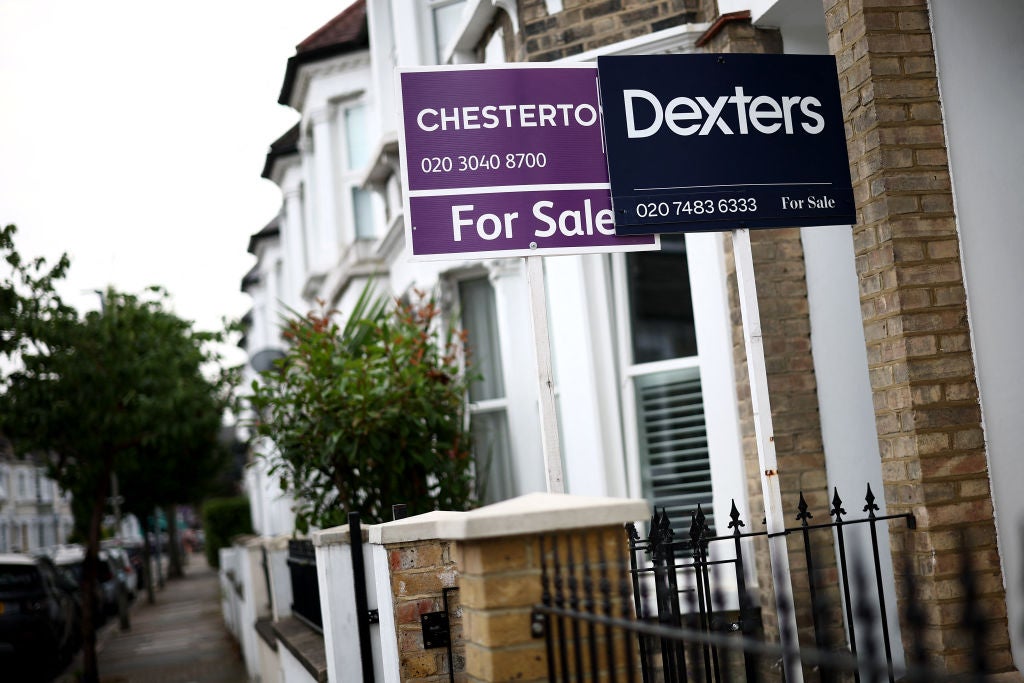As house prices continue to rise, should you buy property using a modern auction?
House-hunters browsing property portals such as Rightmove or Zoopla are increasingly coming across properties listed for sale via the “modern method of auction”.
But if you think you know how property auctions work – conducted in person in an auction house, with fast-paced bids, and a gavel striking the podium – think again.
A typical modern auction takes place virtually, with all bids taking place online over the space of a month – a bit like using eBay, but with much higher stakes.
George Levett, legal expert at Conveyancing Solicitor, says: “Online property auctions – often facilitated via the modern method of auction – are increasingly visible on platforms like Rightmove, offering a middle ground between traditional private treaty sales and fast-paced auction rooms. For homebuyers unfamiliar with this format, it’s vital to understand the nuances before placing a bid.”
Traditional vs online property auctions
Vendors selling via an online auction still need an estate agent – but they won’t be the one paying them. The estate agent will carry out some of their usual duties – such as marketing the property for sale and arranging viewings – and then pair up with an online auctioneer to run the auction.
With a traditional property auction, there is a set auction date and time, with bidders competing against one another on the day. But with an online auction, each property will be on a timer, usually 30 days, and have a guide price. Buyers can submit bids up until the deadline, when the highest bidder wins – assuming the confidential reserve price has been met.
Traditional auctions are usually unconditional. This means that once the hammer falls, contracts are effectively exchanged and both parties are legally obliged to complete the transaction, normally within 28 days. This short timeframe means it’s virtually impossible to buy a property at an auction with a standard mortgage – you need cash or specialist auction finance.
But online auctions are conditional. Instead of an instant exchange of contracts, they offer buyers an exclusive reservation period.
This gives purchasers more time – typically 28 days to exchange contracts and a further 28 days to complete (56 days in total). Crucially, this means buyers can use mainstream mortgage finance.
Get a free fractional share worth up to £100.
Capital at risk.
Terms and conditions apply.
ADVERTISEMENT
Get a free fractional share worth up to £100.
Capital at risk.
Terms and conditions apply.
ADVERTISEMENT

Jamie Cooke, co-founder of online auctioneers IAmSold, says online auctions are growing in popularity because of the speed and certainty they offer. “Our latest research shows that 93 per cent of buyers and sellers want assurance of the other party’s commitment, and 90 per cent want certainty over timescales – both of which auction delivers,” he says, “Completion can outpace private treaty by up to five months, with buyers committed from day one.”
Who pays for the online auction?
In a private treaty sale – the normal way to buy a property via an estate agent – the seller pays the estate agent’s fees. But if a property is sold via online auction, the buyer pays both the estate agent’s and auctioneer’s fees, by way of a hefty fee split between the two parties.
To bid on a property, buyers need to register with the auctioneer beforehand, and provide credit or debit card details. If you win the bidding, you’ll need to pay a reservation fee (or buyer’s fee) immediately – this will be taken from your card. With IAmSold, the reservation fee is typically 4.5 per cent of the purchase price with a £6,600 minimum. So, a purchase price of £400,000 will mean a reservation fee of £18,000.
The reservation fee is on top of the purchase price. So, in the above example, a property with a winning bid of £400,000 will actually cost £418,000. HMRC counts the fee as part of the purchase price – so you’ll be paying stamp duty on the total amount.
Surveys and legal fees
One common misconception about online auctions is that buyers can sort out surveys and legal reviews after the auction. But in reality, you must do this before bidding.
Online auctions usually provide a legal pack – including the property title, searches, special conditions, and any leasehold details – for about £300. Buyers should pay for a solicitor to review this before bidding.

If issues such as disputes over boundaries or problems with planning permission come up later, pulling out could mean losing the reservation fee. If the vendor pulls out, the buyer’s reservation fee should be refunded, albeit with an administration fee deducted.
Dariusz Karpowicz, director at Albion Financial Advice, says: “Online property auctions might seem like bargain hunting’s holy grail, but they’re more like a high-stakes game where the house usually wins.
“While you won’t get gazumped and the process is transparent, these auctions increasingly favour cash-rich investors over ordinary homebuyers. Before you bid, get your solicitor to scrutinise every clause and ensure your mortgage adviser understands auction finance – because once you’ve won, there’s no backing out.”
When investing, your capital is at risk and you may get back less than invested. Past performance doesn’t guarantee future results.







